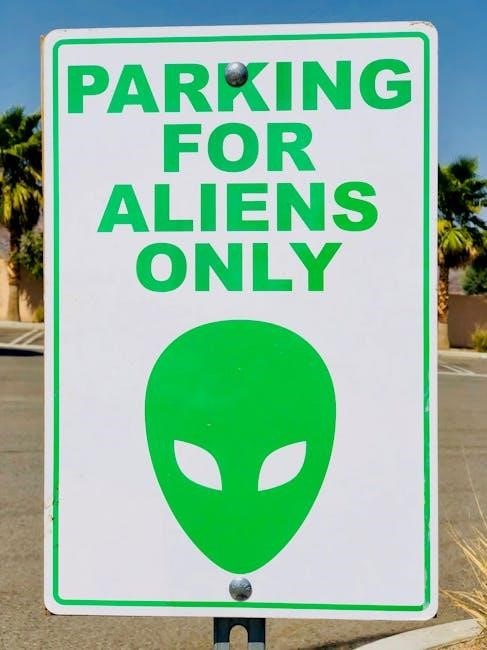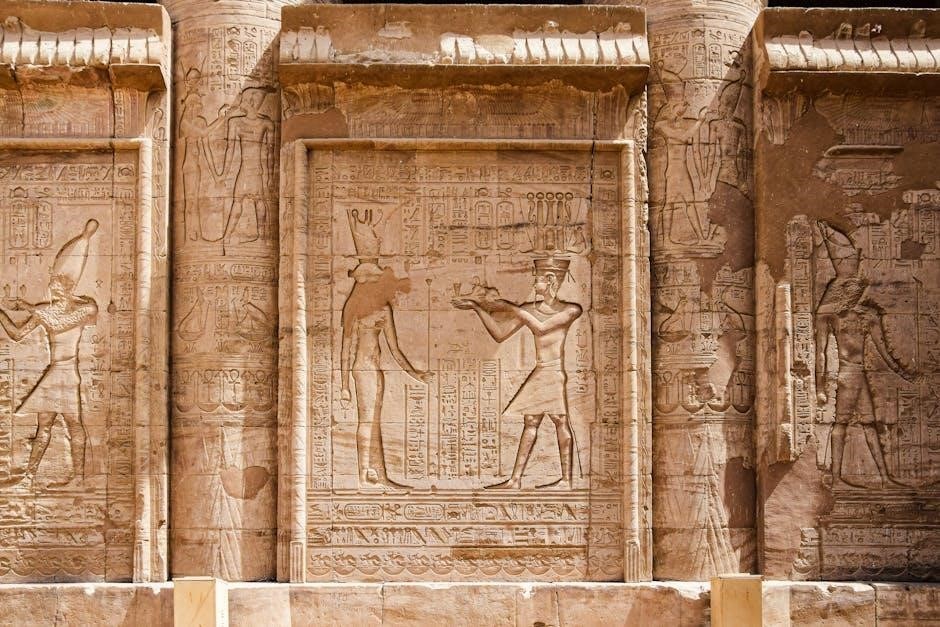vincent ward alien 3 script pdf

Vincent Ward’s Alien 3 script, co-written with John Fasano in 1990, presents a unique vision for the franchise. Set on a wooden planet with a monastery, it offers a distinct, action-oriented tale that explores the clash of faith and survival. Though unproduced, it remains a fascinating chapter in the Alien saga.
1.1 Overview of the Unproduced Script
Vincent Ward’s Alien 3 script, co-written with John Fasano, offers a unique, action-packed narrative. Set on a mysterious wooden planet with a monastery, the story combines religious themes with intense horror elements. The script introduces a compelling setting, diverging from the final film, and features significant character arcs, including the controversial deaths of Hicks and Bishop. Despite never being produced, it has garnered a cult following for its bold vision and detailed world-building, making it a fascinating “what if” in the Alien saga.
1.2 Historical Context in the Alien Franchise
Vincent Ward’s Alien 3 script, crafted in 1990 with John Fasano, represents a pivotal yet unrealized chapter in the Alien saga. Following the acclaim of Aliens (1986), the franchise sought a fresh direction. Ward’s vision, set on a wooden planet with a monastery, offered a unique, atmospheric departure from earlier installments. Although never produced, this script remains a significant footnote in the franchise’s history, illustrating the creative exploration that preceded the final film’s release in 1992.

Development Background of the Script
Vincent Ward joined the Alien 3 project, bringing a unique vision. Script development began, but studio interference and rushed release dates led to significant creative challenges and Ward’s eventual departure.
2.1 Vincent Ward’s Involvement and Vision
Vincent Ward was hired to write and direct Alien 3, bringing a unique, visually driven style. His vision centered on a monastery-like setting on a wooden planet, blending religious themes with horror. Ward’s concept emphasized atmospheric tension and philosophical undertones, diverging from the action-heavy tone of previous films. His involvement marked a creative shift, but studio pressures and rushed timelines ultimately led to his departure, halting his distinctive take on the franchise.
2.2 Collaborative Writing Process with John Fasano
Vincent Ward and John Fasano collaborated on the Alien 3 script, blending their creative visions. Ward focused on the visual and thematic elements, while Fasano contributed to the action-oriented dialogue and pacing. The duo aimed to create a unique blend of horror and philosophy, with a strong emphasis on character development. Their draft introduced a wooden planet and a monastery setting, offering a fresh, atmospheric direction for the franchise. Despite their efforts, the script faced challenges due to studio interference and a rushed production timeline.
Plot and Setting of Ward’s Alien 3
Vincent Ward’s Alien 3 unfolds on a remote wooden planet, Arceon, where a monastery serves as the central setting. The Sulaco is under siege by Aliens, setting the stage for a tense, atmospheric narrative that explores survival and faith amidst a haunting, organic environment.
3.1 The Wooden Planet and Monastery Setting
Vincent Ward’s Alien 3 is set on Arceon, a remote wooden planet dominated by a sprawling monastery. This unique environment, with its organic, ancient structures, creates a haunting atmosphere. The story centers around the monastery, blending religious themes with horror elements. The wooden setting contrasts sharply with the metallic environments of earlier films, offering a fresh visual and narrative backdrop; This isolated world amplifies the tension, as characters confront both the Alien threat and existential questions within the monastery’s sacred walls.
3.2 Key Differences from the Final Alien 3 Film
Vincent Ward’s script drastically differs from the final Alien 3 film. Ward’s vision featured a wooden planet with a monastery, emphasizing religious themes and philosophical undertones. The final film, directed by David Fincher, was set in a gritty, industrial prison colony. Ward’s story included more action-oriented sequences and a unique setting, while the final version focused on horror elements and a darker tone. These creative divergences highlight the lost potential of Ward’s distinctive approach to the franchise.

Themes and Tone in the Script
Vincent Ward’s script explores religious and philosophical themes, blending action and horror elements. The tone is suspenseful, with a unique balance of spirituality and survival.
4.1 Religious and Philosophical Undertones
Vincent Ward’s script delves into profound religious and philosophical themes, setting the story on a monastery satellite. The wooden planet’s sacred environment contrasts with the horror of the Aliens, exploring themes of sacrifice, faith, and existential questioning. Ward’s vision introduces a unique spiritual dimension to the franchise, blending the mystical with the sci-fi horror elements, creating a thought-provoking narrative that stands out from other entries in the series.
4.2 Action-Oriented and Horror Elements
Vincent Ward’s script balances intense action with classic horror, featuring eight major battles and a relentless Alien threat. The wooden monastery setting amplifies the claustrophobic tension, blending spiritual isolation with visceral scares. The narrative maintains the franchise’s hallmark suspense while introducing a faster-paced, thrilling experience, ensuring fans of both action and horror find compelling moments in Ward’s vision for Alien 3.

Why the Script Was Not Produced
The script faced studio interference and release date pressure, with eight months of pre-production halted. Creative differences and budget concerns led to its rejection, prompting a new direction for Alien 3.
5.1 Studio Interference and Release Date Pressure
Studio interference played a significant role in the script’s rejection. With eight months of pre-production underway, the studio pushed for an accelerated release date before the script was finalized. Despite sets being built and Sigourney Weaver’s involvement, the pressure led to the project’s halt. Creative disagreements and financial concerns further complicated the situation, ultimately resulting in the script’s abandonment and the pursuit of a different direction for Alien 3.
5.2 Creative Differences and Budget Concerns
Creative differences between Vincent Ward and the studio were significant. Ward envisioned a visually unique, atmospheric film, while the studio preferred a more conventional, action-oriented approach. Budget concerns also arose, as Ward’s ambitious setting, including a wooden planet and monastery, would have been costly to realize. These disagreements, coupled with financial pressures, led to the script’s rejection. The studio ultimately pursued a different direction, prioritizing a more mainstream horror focus over Ward’s artistic vision.

Legacy and Fan Reception
Vincent Ward’s Alien 3 script has developed a cult following, with fans fascinated by its unique vision and departure from the final film. Its unproduced status fuels enduring curiosity and debate among enthusiasts, who often compare it to the released version, praising its originality and philosophical depth.
6.1 Cult Following and Interest in the Unproduced Film
Vincent Ward’s Alien 3 script has garnered a dedicated cult following, with fans drawn to its unique vision of a wooden planet and monastery setting. The unproduced nature of the film sparks curiosity, as enthusiasts explore concept art and online discussions. Its availability as a PDF has further fueled analysis, allowing fans to compare Ward’s vision with the final film, fostering debates about what could have been a groundbreaking entry in the Alien saga.
6.2 Comparison with the Final Alien 3 Film
The final Alien 3 film, directed by David Fincher, starkly contrasts with Ward’s vision. While Ward’s script featured a wooden planet and monastery setting, the released film opted for a gritty prison planet. The final version lacked the philosophical depth and religious undertones, instead emphasizing action and horror. Fans often debate which approach better served the franchise, with many praising Ward’s unique setting and themes as a lost opportunity for creative storytelling within the Alien universe.
Availability of the Script
The Vincent Ward Alien 3 script is widely available as a PDF online, shared through fan sites and repositories, offering enthusiasts a glimpse into this unproduced vision.
7.1 PDF Versions and Online Resources
The Vincent Ward Alien 3 script is accessible in PDF format on various online platforms, including fan sites like avpgalaxy.net and HorrorLair. These resources provide a detailed look at Ward’s vision, featuring the wooden planet and monastery setting. The script, dated March 29, 1990, offers a unique perspective on the franchise’s direction. Fans and scholars often analyze this draft to explore its creative deviations from the final film. Its availability has fostered a dedicated following, curious about the unproduced story.
7.2 Analysis and Reviews of the Script
The Vincent Ward Alien 3 script has garnered significant attention for its unique vision. Critics and fans praise its atmospheric setting and philosophical themes, which diverge from the final film. The script’s exploration of faith and survival resonates deeply, with many appreciating its bold creative choices. While some find the pacing uneven, the draft is widely regarded as a compelling alternate take on the franchise. Its availability has sparked debates about the directions the series could have taken, enriching fan discussions and analyses.
Vincent Ward’s unproduced Alien 3 script offers a unique, thought-provoking vision, blending horror and philosophy. Its legacy endures as a fascinating “what if” in the franchise’s history, inspiring fans and debates about unexplored directions, despite its unproduced status.
8.1 Impact on the Alien Franchise
Vincent Ward’s Alien 3 script left a lasting mark on the franchise, showcasing a bold, unconventional direction that could have redefined the series. Although unproduced, its unique setting and thematic depth influenced fan discussions and alternative visions, underscoring the potential for creative exploration within the Alien universe. Its legacy as a “lost opportunity” continues to captivate enthusiasts, proving its enduring relevance in franchise lore and debates.

8.2 Final Thoughts on Ward’s Vision
Vincent Ward’s vision for Alien 3 remains a compelling, unfulfilled chapter in the franchise’s history. His script’s blend of religious themes, a unique setting, and action-oriented storytelling offered a fresh perspective. Despite never coming to fruition, Ward’s work has fostered a dedicated fanbase and continues to inspire discussions about what could have been. It stands as a testament to the creative potential often overshadowed by studio pressures in the film industry.





